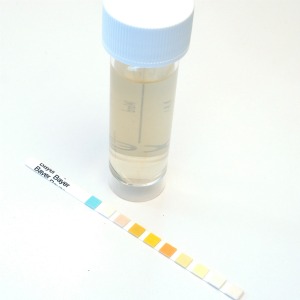Researchers have called for faster, more accurate tests for diagnosing urinary tract infections after their analysis showed less than one in five patients prescribed antibiotics had laboratory tests done.
The study of almost 500,000 patients at 390 practices also found little difference in the number of laboratory tests done in guideline recommended groups including adult men, children, and those with recurrent or persistent infections.
Data from patients treated between 2011 and 2015 showed that four out of five patients received empirical antibiotic treatment on the day of diagnosis and of those only 17% had a recorded urine testing within 10 days.
The results, published in the Lancet journal EClinical Medicine, may reflect the fact that current options for diagnosing UTI are either inaccurate or slow to produce results, the researchers said.
Analysis of the data also showed that while only a small number of patients (4%) received a second course of treatment, one in five of those were given the same antibiotic – a practice not in line with national guidance, the researchers said.
Among the 3,000 patients a year receiving a second prescription for their UTI symptoms, the re-prescribing of the same antibiotic was seen ‘surprisingly frequently’ and increased over the period studied, they concluded.
The study found that though GPs were following national guidelines on sticking to trimethoprim and nitrofurantoin for initial treatment, there may be more opportunity to reduce empirical treatment and employ a strategy of delayed prescriptions and more testing for some patients.
And study leader Dr Mar Pujades Rodriguez, from the University of Leeds, said the results suggested that existing laboratory tests for UTIs were having little impact on the prescribing of antibiotics.
Dr Pujades Rodriguez said: ‘Doctors are currently limited in their options when somebody shows signs of having a UTI, and they urgently need access to accurate rapid diagnostics tests.
‘UTIs are one of the most common reasons that antibiotics are prescribed, so the potential contribution this is causing to antibiotic resistance might be very significant.’
Guidance from Public Health England in 2018 advised GPs to stop doing urine dipstick tests in the over 65s as they were too unreliable.
Professor Azeem Majeed, head of primary care and public health at Imperial College London, said: ‘Many doctors in primary care will treat patients with a suspected UTI empirically based on symptoms and signs because it can take a few days to get the results of a mid-stream urine test from a laboratory.
‘Patients have often tried over the counter remedies and may not be keen to wait for a few days for a test result before starting treatment.’
He agreed with the researchers that there is a need for a more effective point-of-care test.
Professor Majeed pointed out that only a small proportion of patients in the study needed a second course of treatment.
He said: ‘Patients may have been improving but not had full symptom relief. In these circumstances, it would be reasonable to issue the same antibiotic. In cases where there is treatment failure, it would be reasonable to try a different antibiotic.’
Last year, Pulse reported that a new antibiotic was effective against drug-resistant UTIs in a clinical trial.
Pulse July survey
Take our July 2025 survey to potentially win £1.000 worth of tokens












